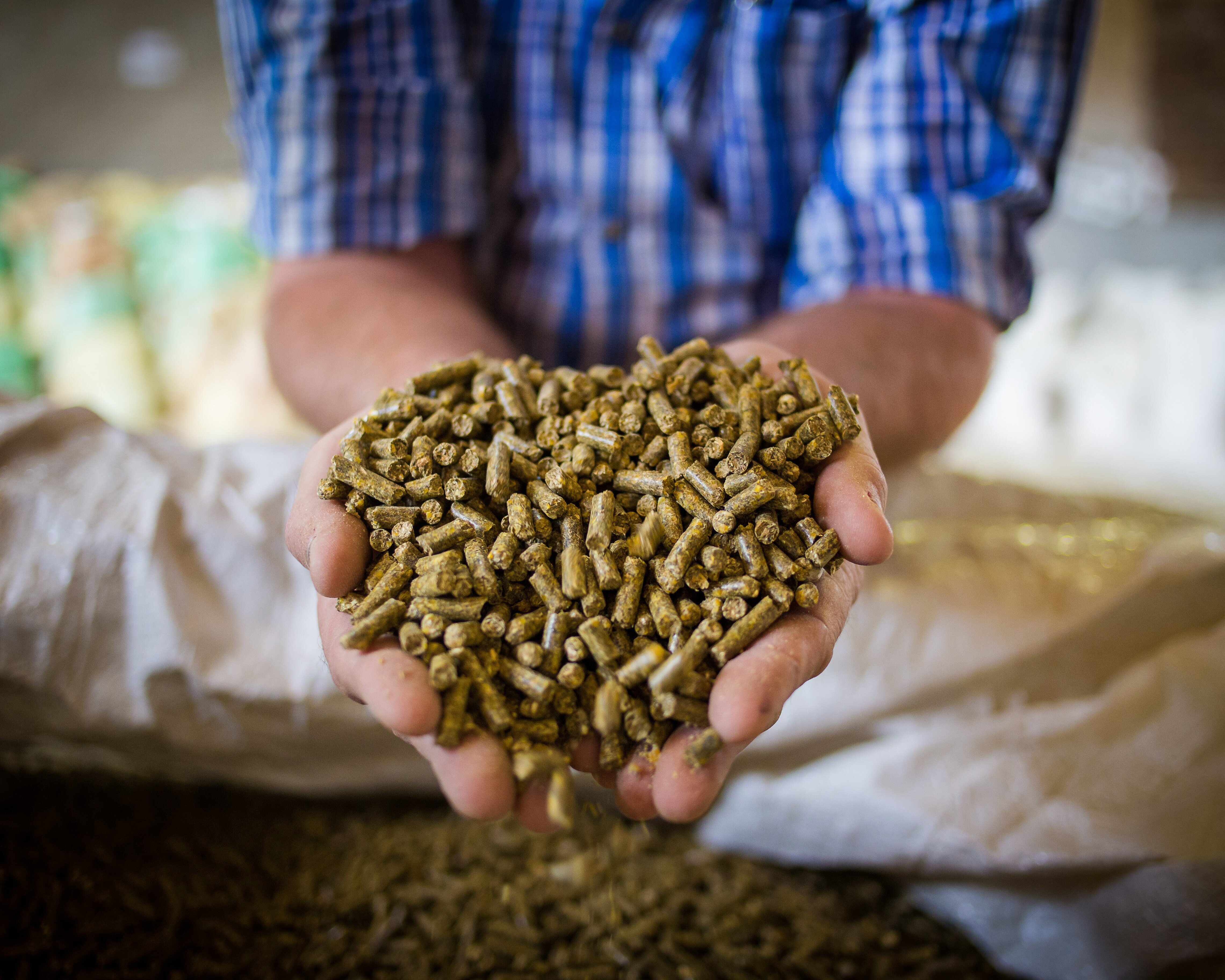
Preventive Maintenance Tips for Animal Feed Producers
In the animal feed industry, where production lines run long hours and equipment reliability directly impacts profitability, maintenance isn’t just a support function, it’s a strategic advantage. For plant maintenance managers, the stakes are high: unplanned downtime can derail schedules, delay shipments, and inflate repair costs.
In this post, we’ll explore why proactive maintenance matters in feed packaging, how to build a preventive maintenance roadmap, and what essential tasks and technologies can help you stay ahead of breakdowns. You’ll also find practical tips for balancing maintenance costs with production goals – plus insights into how BW Flexible Systems can support your team with tailored service programs and durable, high-performance bag filling and palletizing solutions.
Who We Are
BW Flexible Systems helps animal feed producers safeguard product integrity while modernizing their operations with flexible bag filling, sealing and palletizing solutions. Our automated Thiele bagging and SYMACH palletizing solutions are known for their efficiency, versatility, precision, and ease of operability. We offer our clients training, service and a lifetime of support for every solution sold.
The Pitfalls of Reactive Maintenance
When maintenance is only triggered by breakdowns, the consequences ripple across your operation:
- Unplanned downtime disrupts production schedules and delays shipments.
- Emergency repairs drive up costs with rush parts and overtime labor.
- Band-aid fixes often lead to recurring issues and reduced equipment lifespan.
- Customer trust can erode when delays impact delivery commitments.
In high-volume feed plant environments, even a short halt in packaging can throw off batching, blending, and distribution, especially when bulk and bagged feed lines are tightly integrated.
4 Core Competencies of Preventive Maintenance
To move from reactive firefighting to strategic equipment management, plant maintenance managers must master four core competencies that underpin effective preventive maintenance. These skills not only reduce downtime and repair costs but also support long-term operational resilience across animal feed packaging lines.
1) Performance Monitoring & Data Interpretation
Understanding how your packaging equipment performs over time is essential to identifying inefficiencies and preventing failures. Maintenance managers should track key metrics like downtime, cycle counts, and throughput to establish performance baselines. These data points help uncover patterns – such as recurring issues tied to specific shifts or feed types – and provide the justification needed for budget allocations, upgrades, or staffing adjustments.
2) Predictive Maintenance & Technology Integration
Modern feed bagging systems are increasingly equipped with sensors and software that enable predictive maintenance. This competency involves using real-time data – vibration, temperature, electrical current – to detect anomalies before they become breakdowns. AI-driven tools can analyze historical performance to recommend optimal service intervals, allowing maintenance teams to shift from fixed schedules to condition-based upkeep that minimizes waste and maximizes uptime.
3) Workforce Training & Technical Skill Development
Even the most advanced equipment depends on skilled operators and technicians. Maintenance managers must ensure their teams are trained to recognize early warning signs – like unusual noises or fluid leaks—and perform diagnostics with confidence. Customized training modules tailored to specific systems, including hands-on workshops and vendor-led sessions, help build deep technical knowledge and foster a proactive maintenance culture.
4) Strategic Maintenance Planning & Cost Optimization
Balancing maintenance schedules with production goals requires strategic foresight. This competency includes analyzing historical repair trends, planning around seasonal production peaks, and setting tolerances for acceptable downtime. Maintenance managers should also implement cost-benefit analyses for parts replacement and standardize workflows to ensure consistency across shifts. Regular reviews of machine health and scheduling effectiveness help refine strategies and align maintenance efforts with business outcomes.
Check List: 12 Quick Wins for Plant Maintenance Managers
To help you stay ahead of breakdowns and keep your bag filling and palletizing equipment running at peak performance, we’ve compiled 12 quick wins that plant maintenance teams can implement right away to start taking a more proactive approach to machine maintenance:
- Review Equipment History: Identify recurring failure points on your animal feed bagging lines to prioritize inspections.
- Create Equipment-Specific Checklists: Include tasks like belt tension checks, sensor calibration, and lubrication intervals.
- Schedule by Usage Patterns: Align daily, weekly, and monthly tasks with your plant’s production cycles and OEM guidelines.
- Stock Critical Spare Parts: Keep high-wear items like sealing jaws, belts, and sensors on hand to avoid costly delays.
- Document Everything: Use digital logs to track maintenance activities, spot trends, and support audits.
- Train Cross-Functional Teams: Empower operators to identify early warning signs and collaborate with technicians.
- Adapt as You Go: Update your roadmap as new technologies or operational demands emerge.
- Clean and Sanitize: Prevent buildup that can interfere with sensors and drive systems.
- Lubricate Moving Parts: Extend the life of gears, rollers, and bearings under heavy loads.
- Inspect Belts and Conveyors: Avoid misalignment that leads to poor bag fills or jams.
- Test Electrical Systems: Ensure sensors and switches are functioning for accurate bag placement and sealing.
- Monitor Heat and Pressure: Maintain sealing integrity and prevent pneumatic failures.
3 Low-Maintenance Bagging & Palletizing Solutions
Preventive maintenance is most effective when your equipment is designed to support it. At BW Flexible Systems, our bag filling and palletizing solutions are engineered to reduce maintenance complexity, streamline troubleshooting, and extend machine life, all while delivering the speed and precision animal feed producers demand. Here are three standout systems that align with the maintenance strategies discussed above:
- Thiele UltraStar Bagging Solutions
Thiele UltraStar is a high-speed bag filling system built for feed producers who prioritize uptime and throughput. With the ability to fill up to 38 bags per minute, the UltraStar combines sealers, scales, and bag hangers into a unified system that’s engineered for performance and longevity. Its re-engineered design reduces downtime by minimizing part variety and improving accessibility, which means faster repairs, smaller spare parts inventories, and lower maintenance costs. - Thiele OmniStar Bagging Solutions
Thiele OmniStar is a versatile, mid-speed bag filling system ideal for producers balancing efficiency with flexibility. Capable of filling up to 20 bags per minute, the OmniStar features a simplified design with one-third the moving parts of competing systems, making it easier and safer to maintain. Built-in maintenance reminders, automatic bag rejection, and servo-driven adjustments reduce operator error and downtime. - SYMAH Mach Series Palletizers
Symach Mach Series Palletizers are engineered for precision stacking, product protection, and long-term durability across a wide range of bag types and weights. With models capable of stacking up to 36 bags per minute, the Mach Series features a unique manipulator that gently handles each bag for accurate placement and superior load stability. Its intuitive touchscreen interface, low-maintenance design, and customizable options – such as stacking cages, slip sheet dispensers, and hybrid heads – make it a powerful tool for maintenance managers seeking to reduce mechanical stress, simplify upkeep, and maintain consistent pallet quality.
Lifetime Support That Protects Your Investment
At BW Flexible Systems, our commitment to maintaining optimal machine performance doesn’t end at the point of sale – it continues through every stage of your operation. We offer comprehensive training and lifetime support to ensure your team gets the most from your UltraStar, OmniStar, and Mach Series systems. From onboarding and operator education to ongoing technical assistance and expert guidance, we’re here to help you maintain optimal performance, reduce downtime, and preserve product integrity for the long haul.
Learn More
Did you find this content useful? To discover more insights, tools, and solutions tailored for animal feed producers, visit our Animal Feed Packaging Solutions page.


